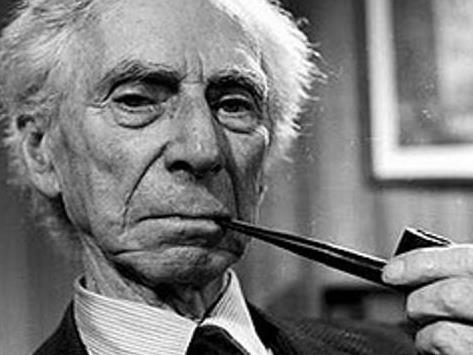Philosopher Bertrand Russell, Image via bertrandrussell.org
You may know by now that being a public intellectual is not always so easy. You might have years of robust knowledge on a topic, but it doesn’t mean people are listening to you. But rather than wallowing in well-informed bitterness, there are steps you can take to get your voice out there.
Writers Victoria held a workshop as part of The Wheeler Centre Anniversary Series to help harness the skills you need to become a go-to person on your topic of interest.
Host and Director of The Wheeler Centre Michael Williams, publishing editor Mandy Brett and journalist Jonathan Green used their expertise in the field of expertise to help distil a few key steps to becoming a public intellectual.
Know who you are
It can be really hard to summarise yourself succinctly. How do you cram decades of varied experience into a one-line summary?
Williams said it took him years to come up with the title of ‘literary commentator’. But he compelled everyone to do the same; free of justifications, apologies and rambling. People don’t want to hear your life story. They want to hear what it is that you do, so they can assess if you’re worth listening to. You need to be sure of who you are and what you’re aiming for. So don’t shy away from ‘labels’ like a non-committal teenager: Define Yourself.
Be confident in your abilities
‘Oh, I’m not an expert.’ While we have been told repeatedly that modesty is a virtue, you’re never going to be considered an expert if you don’t think you are one. Both Williams and Green admitted that ‘public intellectualism’ is a highly gendered area. There are many reasons for this, but Williams said women are especially bad at owning their expertise, declining to speak at big events because they don’t feel they are the most qualified for the job. Men seem to have less of a problem doing this.
An expert needs to have authority, otherwise they are just some person with an opinion. You need to ask yourself: ‘Why should anyone listen to me?’ And you need to be able to answer. Confidently.
Know why it’s relevant
Brett believes people approach reading and the dissemination of information more often as an exercise of emotion than an exercise of intellect. Why should the public care? Just because you wrote a paper on it doesn’t make it relevant. If you have a specialist interest, figure out a way to make other people care too. Is it remarkable and unique? Is it representative? Is it somewhere in the middle? Know where your topic fits.
Get your voice out there
To be a public intellectual, you have to be in the public. This can be tricky, but in an increasingly digitised environment, there are more and more avenues on which to broadcast yourself. You can’t wait for people to come to you; you need to be out there making yourself known.
There is a theory that the quickest route to being a public intellectual is to write a book on the topic. While this is in a way true, Brett discourages people from thinking it’s the easy answer. Writing a book is hard. Getting it published is even harder.
‘To get your book published, be a public intellectual first,’ she said. ‘You’ve got to be in public forums.’
Green said he often looks for new talent on Twitter, because he is able to get a sense of someone’s personality, interests and clarity of voice.
‘If you can say something wise, funny, controversial and thoughtful in 140 characters, I’m impressed,’ he said.
It’s all about contributing to the conversation. Write opinion pieces and columns, get on social media, write a blog. Make your voice strong, unique and authoritative, so everything you do is your own promotion.
Be Authentic
Standing out is essential if you want to be noticed in the public eye. But with such an enormous, vigorous and unforgiving eye, you need to be genuine. Williams believes integrity of purpose is detectable, even on a subconscious level. And that will make people trust you.
Green underlined the importance of being honest about what you think, on a range of topics.
‘I don’t think that’s something people should be so afraid of,’ he said.
Be good
‘It is about quality,’ said Brett, repeatedly. You’re not going to get anywhere if you’re not good.
Green concurred, having interviewed countless experts on ABC Radio. If you know your subject well but you’re not good at conveying it, he won’t get you back. Being an expert has an element of performance in it.
Both Green and Brett referenced public intellectuals to which they repeatedly turn (Waleed Aly and David Marr were examples), because they know they will always be worth paying attention to, no matter what they’re talking about. Quality is the key.
And if all of this fails, Williams quipped, get a job with a good title: like Director of the Wheeler Centre.
‘Have a job you can point at that does all the heavy lifting for you,’ he said.





